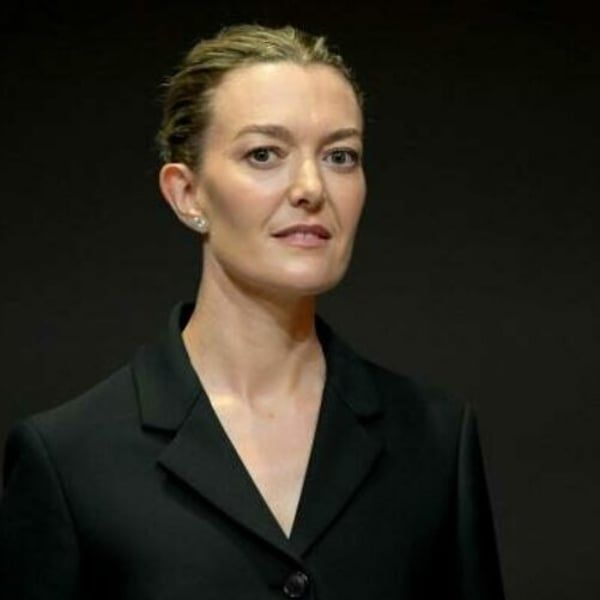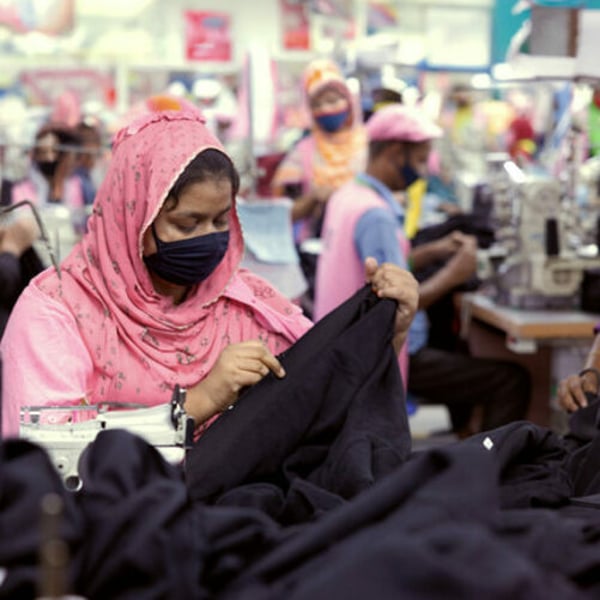By
AFP
Published
March 5, 2024
They occupy more and more key positions, but they continue to stumble at the bottom rung. Despite the growing presence of women on boards of directors, the business world is still largely run by men.
“The business world was built to adapt to the needs of men,” Tara Cemlyn-Jones, director of the British organization 25×25, dedicated to promoting parity in companies, told AFP.
“The only way to change things is to make structures fairer for women,” says the former investment banker.
The figures are indisputable. According to a Deloitte report on nearly 10,500 companies worldwide, 19.7% of board members in 2021 were women, compared to… 5% of CEOs.
In the United States, women represented about 24% of board members, but less than 6% of CEOs. The pattern is similar in the UK (around 30% of board seats, 6% of CEOs). Meanwhile, France has introduced the Copé-Zimmermann law, which since 2011 has imposed a minimum quota of 40% of women on boards of directors. A way to get your foot in the door.
“This will pay off in the long term,” says Diane Segalen, president of recruitment consultancy Segalen + Associés.
According to Deloitte, in 2021, 43.2% of board directors in France were women. However, currently only three women are at the head of a company in the flagship CAC 40 index of the Paris Stock Exchange (Catherine MacGregor at Engie, Christel Heydemann at Orange and Estelle Brachlianoff at Veolia).
It must be said that the business world has long been a male bastion. The first woman to preside over the influential French Association of Private Enterprise (Afep), Patricia Barbizet, a regular on the boards of directors of CAC 40, recalled in 2021 that “she entered a business school the first year they admitted girls” .
No country stands out for its professional equality. In Germany, only Belén Garijo, from the Merck laboratory, runs a company on the DAX, the leading index of the Frankfurt Stock Exchange.
In Spain, the vast majority of companies in the Ibex 35, the Iberian equivalent of the CAC 40, are run by men, with the exception of Inditex (owner of Zara) and Santander, the first Spanish bank, which are headed by Marta Ortega and Ana Loot respectively.
Italy, meanwhile, is no better off and last year Giuseppina di Foggia, chief executive of energy distributor Terna, became the first woman to head a major public group in the country.
Atmosphere
After all, it is one thing to have women on boards, but they also need to occupy key positions on the executive committee, which is a prerequisite for senior management.
Ariane Bucaille, partner at Deloitte, believes that “quotas are a formidable accelerator”, but “if we see an increase in the number of women on executive committees, it is more in functions such as human resources and marketing,” she analyzes.
The nonprofit 25×25 recently published a report on the topic, which comes to more or less the same conclusions. Certain senior management positions, such as CFO, are a real path to general management, but the proportion of women in them “remains remarkably low,” she concludes.
To remedy this situation, France, a pioneer in this area, has adopted the Rixain law, which sets the goal of at least 30% of women in executive bodies from 2026 increasing to 40% in 2029.
This law “will favor some progress, but it will surely be slow,” says Bucaille: “We must not relax our efforts, because (…) we are very far from reaching our objective.”
Quotas or no quotas, for Tara Cemlyn-Jones, the first priority is transforming the environment. And for this, investors have a role to play.
“Questions need to be asked about the way investment decisions are made. How can it be acceptable for fund managers to say, 'Don't worry about the gender of the manager'? We don't want to hear that,” urges Tara Cemlyn. -Jones.
However, talent scout Diane Segalen is confident: “I think this will happen with the next generation, which started in the 2000s and has had older women and inspiring role models,” she says.
Copyright © 2024 AFP. All rights reserved. All information displayed in this section (submissions, photographs, logos) are protected by intellectual property rights owned by Agence France-Presse. Consequently, you may not copy, reproduce, modify, transmit, publish, display or commercially exploit in any way the content of this section without the prior written consent of Agence France-Presses.












